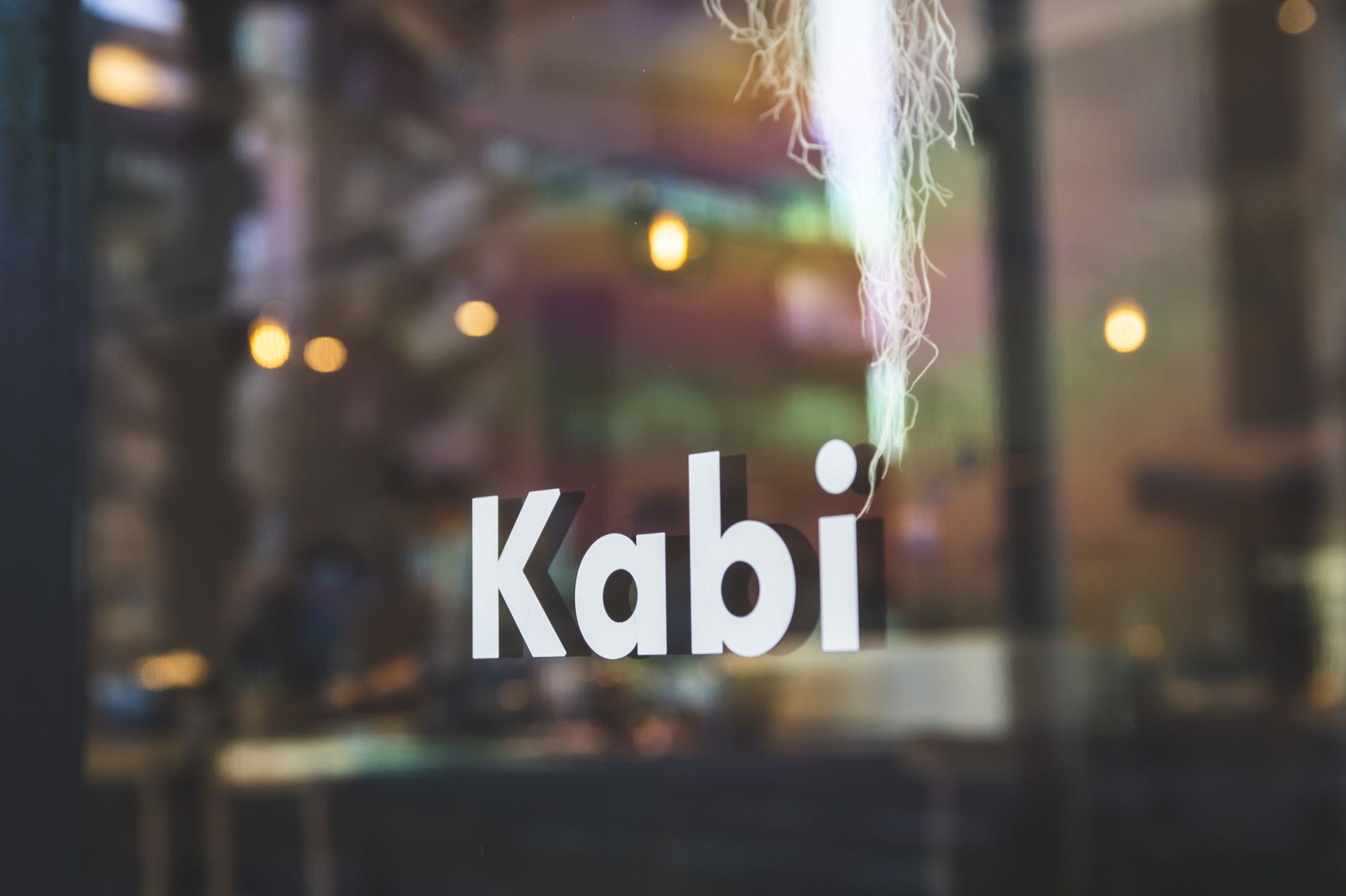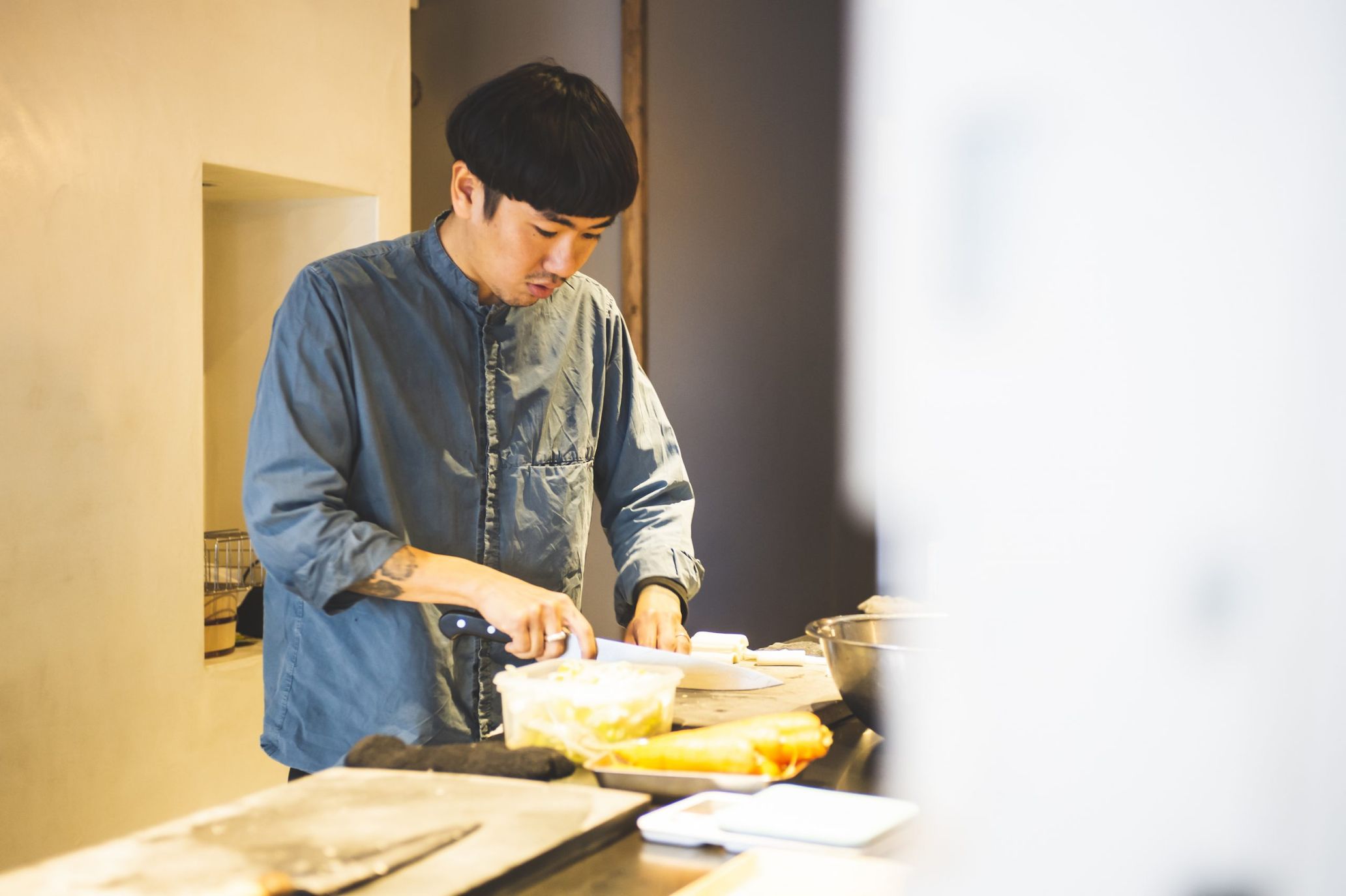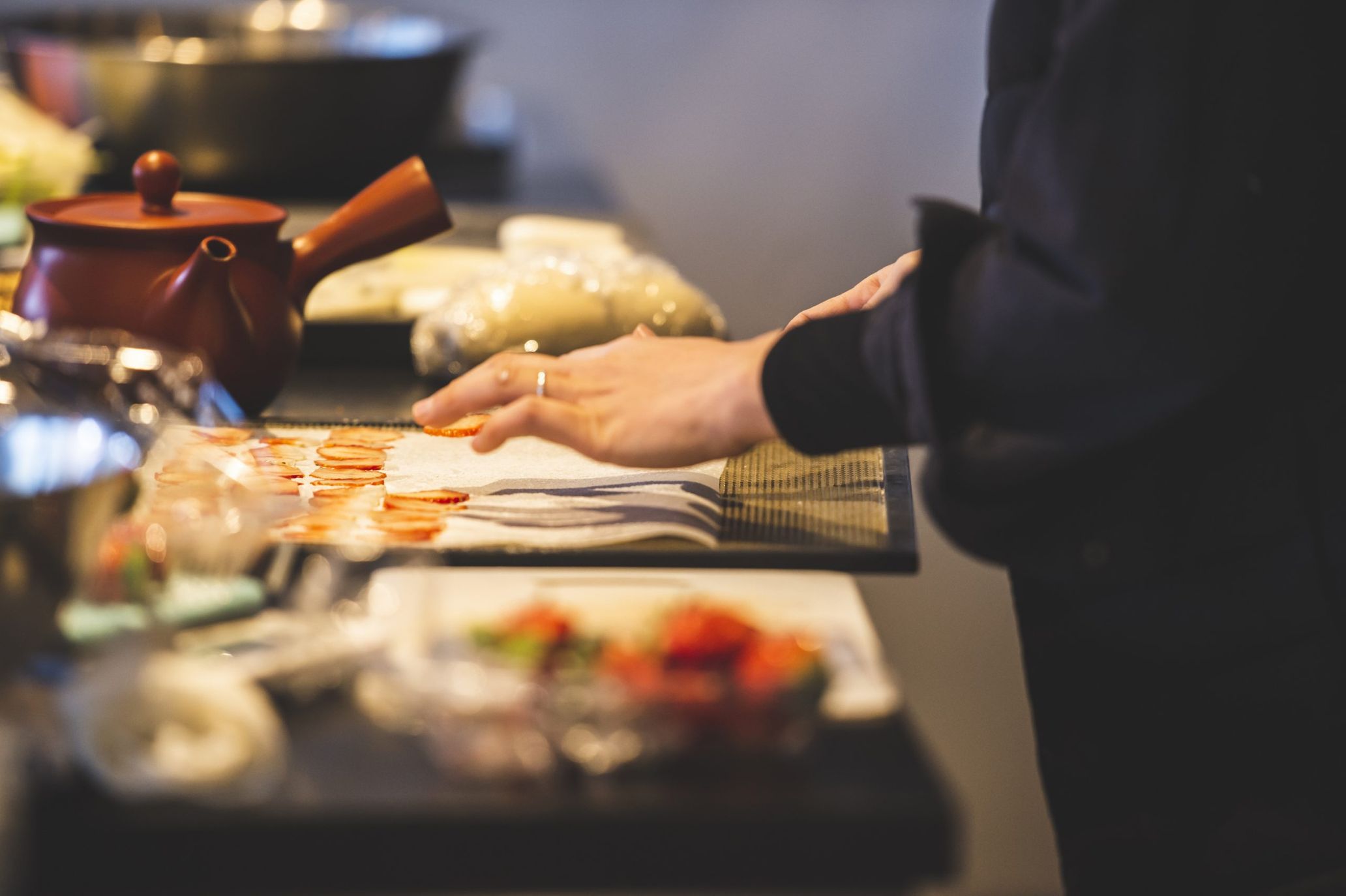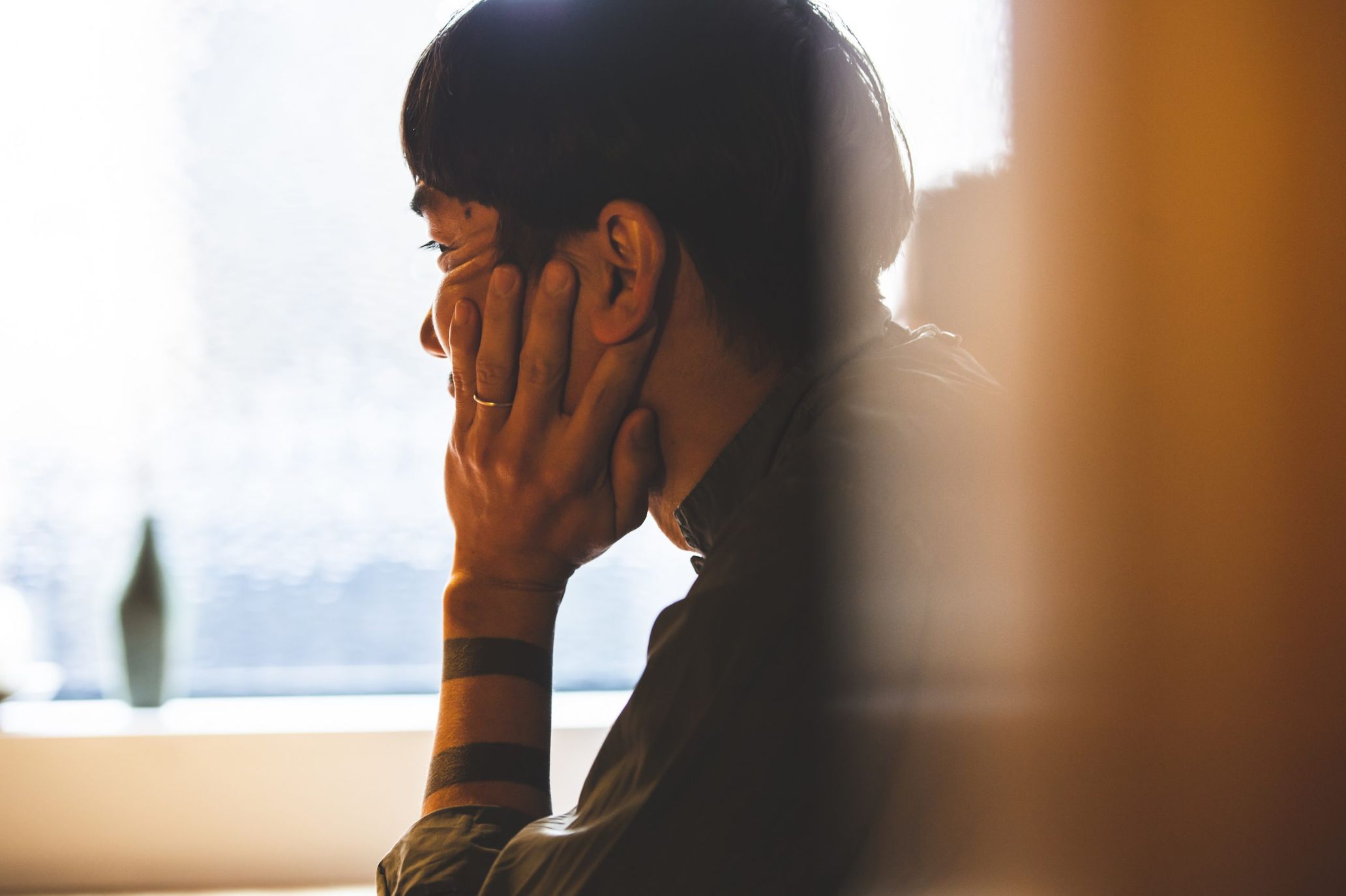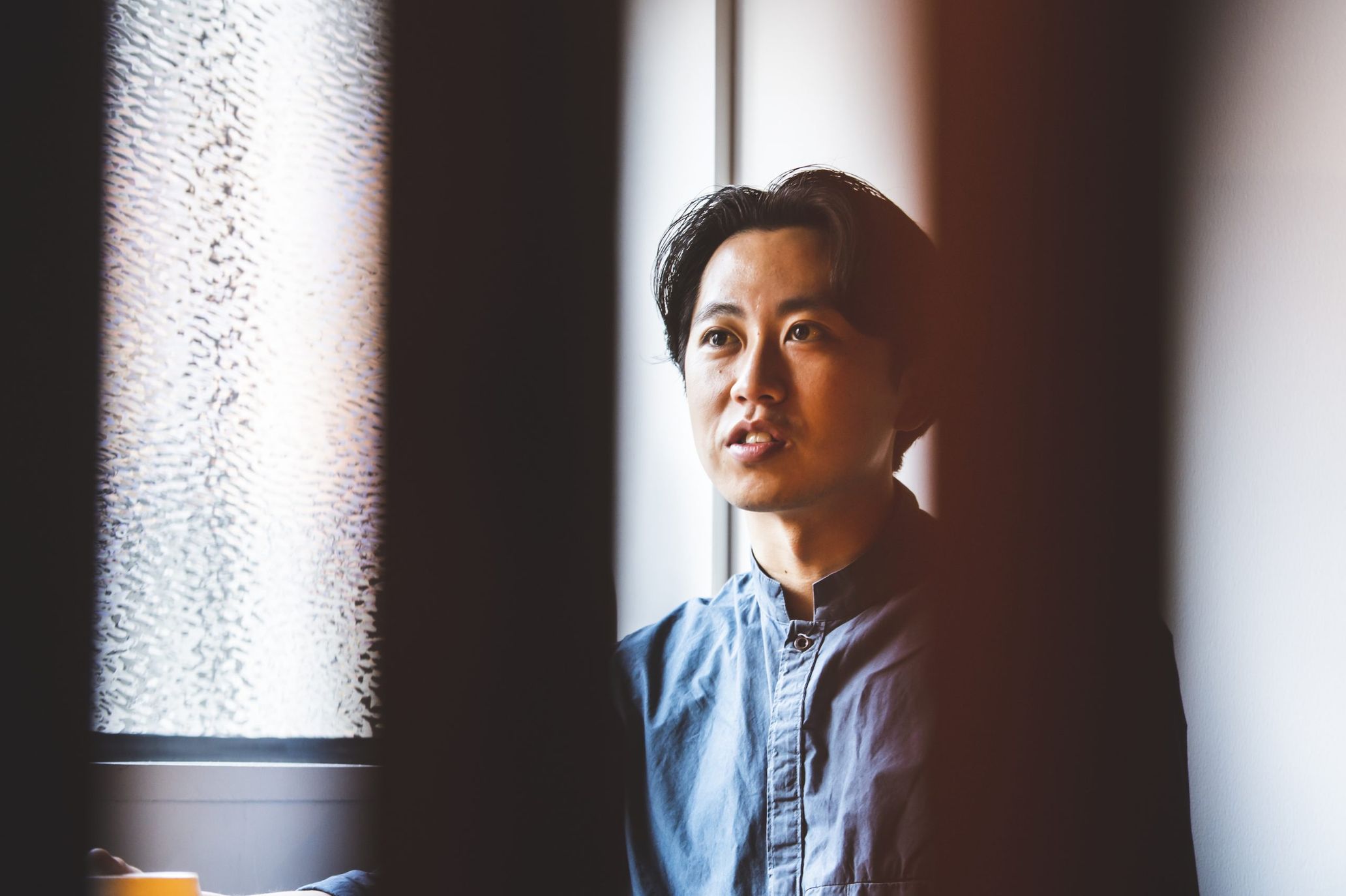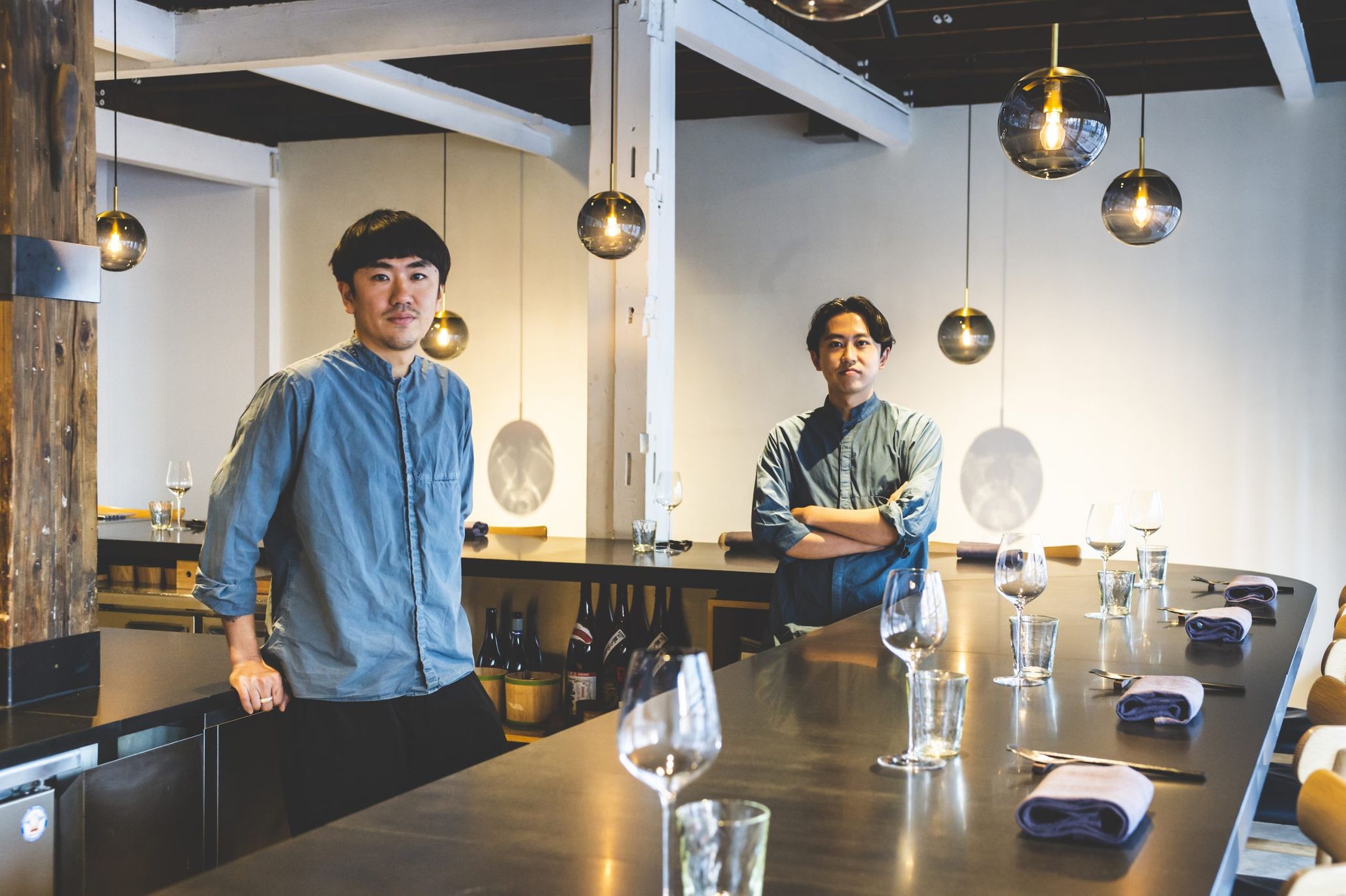The theme of this series is to understand Japanese “intentions” through people, community, and events, and reconsider the true nature of Japanese culture in any field. Kabi was opened in 2017 by co-owners chef Shohei Yasuda, who spent time in Copenhagen, and sommelier Kentaro Emoto, who spent time in Melbourne. We talked to them about how their “offensive strategy” of not changing their personal style is their driving force.
Choosing originality over foot traffic in Covid times
Society has changed greatly due to the Covid-19 pandemic. The restaurant and bar industry that thrived on people gathering, dining, and socializing is now a hotspot for infections, and has been subject to many regulations.
The effect of stronger regulations doesn’t stop at operational changes. Because of regulations shortening nighttime hours and lessening capacity, many restaurants have started to extend business hours to lunchtime and have expanded their nonalcoholic beverage options. These measures are taken merely to cope with these regulations. They are rarely ever offensive strategies taken on behalf of the restaurant. Until 2019, restaurant culture was booming. And just like the rest of the world, it rapidly declined in Japan.
Although the restaurant sits along Meguro Avenue, Kabi is far from every train station. Co-owners chef Shohei Yasuda, who spent time in Copenhagen, and sommelier Kentaro Emoto, who spent time in Melbourne, opened the restaurant in 2017. At the time, both were in their 20s, as was their staff. The Kabi staff are all close; they go camping together on their days off, and the owners help out with dishes. This dynamic is far different from the normal hierarchies that exist in the restaurant world.
The two have stuck to their own way of doing things, with a complete lack of pretension. Their attitude hasn’t changed since Covid, either. In fact, the restaurant has continued to adopt offensive measures to further their vision.
“Half of the restaurant’s five-year history has been affected by Covid. We have a sister restaurant called CAVEMAN in the K5 hotel in Nihonbashi that opened in March of 2020, coinciding exactly with the pandemic” (Emoto). As many are aware, the current climate is different compared to when tourists crowded the city. This didn’t just affect them, but the whole industry. Even Michelin star restaurants suspended operation or closed their doors permanently. State of emergency regulations and stay-at-home requests forced Kabi to change their style of courses and wine pairings. However, these long-standing orders drove them to a big decision.
“Last year, we decided to change our operation style back to what it was before Covid. In 2020, we updated our menu according to government regulations. We started serving nonalcoholic beverages, included short courses, and added lunch hours. But we weren’t able to find joy in operating that way. This went against everything we believed in, so we both decided to change it back” (Emoto).
During the stay-at-home request period, they announced on social media that they would decline government subsidies and resume regular operations. Many of their customers replied with messages of excitement.
Yasuda and Emoto were against doing something they couldn’t have fun doing. Choosing originality over foot traffic is a tough decision. Considering the current climate and that anyone can anonymously review the restaurant online also makes it much easier said than done. But it didn’t seem like the two owners found this to be a particularly difficult task. When asked how the restaurant changed with Covid, they answered, “it’s changed, but not because of Covid. It’s changed because we’ve modified the ingredients we use.” Instead of implementing strategies that work with stay-at-home regulations, Kabi approached change through offensive countermeasures.
“We use more quality ingredients now than when we first opened. By increasing connections with the providers, we’re able to obtain ingredients we want to use. We’ve slowly raised the course prices, and because we use such high-quality ingredients, we no longer have to add much. Instead, we make dishes that rely on the flavor of each ingredient” (Yasuda).
Protecting your sanctuary: choosing what brings you joy as a way to survive the chaos of the world
Interestingly, by relying on ingredients’ natural flavors, they use less fermented foods, or kabi, the restaurant’s namesake. The music they play has also changed. “Before, we played a lot of digital music, but now it’s more organic. And with our dishes, we no longer have to rely on fermentation because each ingredient is delicious on its own” (Yasuda).
What is it that we truly want to do? As society is filled with uncertainty, information and others’ evaluations can be heavily impactful. Instead of being influenced by these factors, Kabi’s owners have shifted their focus on what they personally value. These standards are reflected in the operation of the restaurant.
Before, the two owners seemed like they had no interest in prestige. Upon visiting them to talk about Michelin awards, they replied, “when did they announce the awards?” They hadn’t been following it at all, and had no clue we were there to interview them on the day of the awards. But they’ve changed their tone quite a bit. “We’ve been talking about how it would be nice to get stars and good rankings” (Emoto). Although they now strive for prestige, they don’t envision themselves continuing operation for very long. “I bought a plot of land in Hakuba, in Nagano prefecture. In the future, I want to start an auberge with my family there” (Yasuda).
The two owners have chosen collaboration over control. But the time they have at the restaurant is limited. They change to not change. In a time where one can be easily influenced, Kabi walks its own path. There may be pros and cons to that approach, but your sanctuary is ultimately what brings you joy. It could be that protecting said sanctuary is one way to survive societal chaos during the time of Covid.
Shohei Yasuda
Born in 1991. Moved to France after graduating culinary school in Osaka. Upon his return, Yasuda worked at La Cime, a two-star Michelin restaurant in Osaka, then became sous chef of French restaurant Tirpse in Tokyo’s Shiroganedai. In 2015, Yasuda moved to Denmark to become a chef at one-star Michelin restaurant Kadeau in Copenhagen. In 2017, Yasuda opened Kabi in Meguro.
Kentaro Emoto
Born in 1989. Moved to France after graduating culinary school. After working at Aux Provençaux in Kojimachi, Emoto moved to the U.S. While studying English at UC Davis in California, he learned about distilling alcohol, then studied wine-making in Australia. He went on to become the manager/chef/sommelier at Nora in Melbourne. After returning to Japan, he opened Kabi along with chef Yasuda.
Photography Kunihisa Kobayashi
Translation Mimiko Goldstein
■Kabi
Address: 4-10-8 Meguro, Meguro-ku, Tokyo
Hours: 12:00-17:00 (reserved for reservations/reservation only/online reservations only)
Website: kabi.tokyo/

